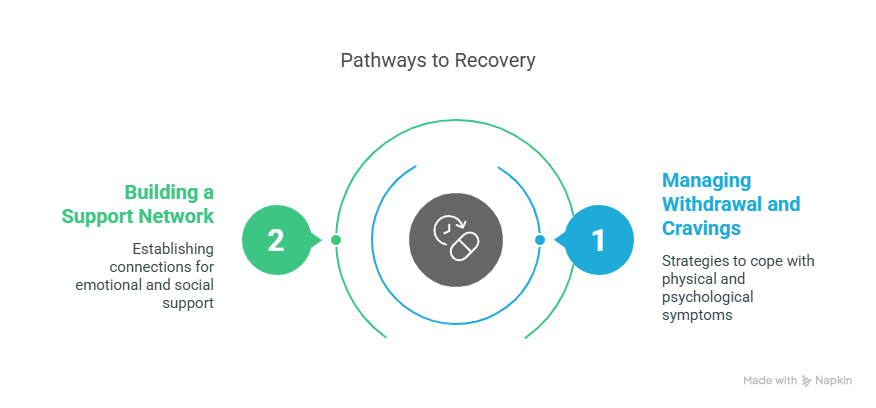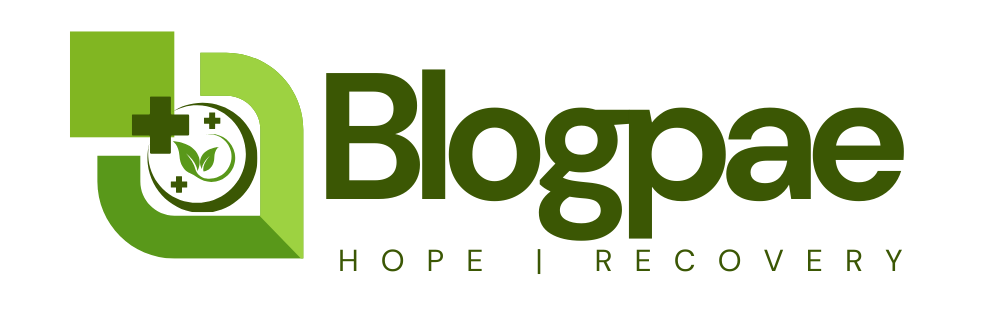Overcoming addiction is a journey that requires dedication and the right support. For many, step work has been a crucial element in recovery from substance abuse, including fentanyl addiction.
My personal experience with addiction recovery has shown me that step work can be a transformative process. It involves a series of guided steps that help individuals understand and overcome their addiction.
By following these steps, individuals can gain the tools and support needed to overcome their addiction and rebuild their lives.
Key Takeaways
- Step work is a vital component of recovery from fentanyl addiction.
- It involves a series of guided steps to overcome substance abuse.
- Personal dedication and support are crucial for successful recovery.
- Step work helps individuals understand and manage their addiction.
- Recovery is a journey that requires the right tools and support.
My Descent into Fentanyl Addiction
150
The final output is enclosed in the “ tag, meeting the specified requirements and guidelines.
Step Work for Fentanyl Addicts: My Introduction
Embarking on the journey of recovery from fentanyl addiction was a daunting task, but the introduction to step work changed everything for me. Step work offered a structured approach to overcoming addiction, providing a clear path forward during a time of uncertainty.
Finding the right recovery program was a crucial step in my journey. I explored various recovery resources until I found a drug rehabilitation program that resonated with me. This program not only addressed my physical dependence on fentanyl but also provided emotional and psychological support.
Finding My Recovery Program
My search for a recovery program led me to explore different options, from counseling services to support groups. I was looking for a program that understood the complexities of fentanyl addiction and offered a holistic approach to recovery.
The program I chose was based on a 12-step methodology, which provided a comprehensive framework for overcoming addiction. It included regular meetings, mentorship, and a community of individuals who were going through similar experiences.
Overcoming Initial Resistance
Initially, I was resistant to the idea of step work, having concerns about its effectiveness and feeling apprehensive about sharing my experiences with others. However, as I began to engage with the program, I found it to be a transformative experience.
The support and guidance I received helped me to overcome my initial resistance and embrace the recovery process fully.
| Key Components | Description | Benefits |
|---|---|---|
| Structured Program | A 12-step program tailored to address fentanyl addiction | Provides a clear roadmap to recovery |
| Community Support | Regular meetings and mentorship | Fosters a sense of belonging and support |
| Holistic Approach | Addresses physical, emotional, and psychological aspects | Promotes overall well-being and long-term recovery |
The Foundation Steps That Began My Healing
Recovery from fentanyl addiction starts with fundamental steps that pave the way for healing. These initial steps are crucial in setting the stage for a successful recovery journey. Admitting the need for help and seeking support are among the first and most important actions. This journey is often facilitated by recovery support groups that provide a sense of community and understanding.
The process involves several key elements that work together to support the individual’s path towards sobriety.
Admitting Powerlessness Over Opioids
The first step in the recovery process is admitting powerlessness over opioids. This involves acknowledging the loss of control over opioid use and recognizing the negative impact it has on one’s life. It’s a crucial step towards accepting the need for help and support.
- Acknowledging the problem
- Accepting the need for help
- Seeking support from recovery groups
Finding Hope Through a Higher Power
Finding hope through a higher power is another foundational step. This involves cultivating a spiritual connection that provides strength and guidance throughout the recovery journey. It’s about finding a power greater than oneself that can offer support and comfort.
- Exploring spiritual beliefs
- Cultivating a sense of connection to a higher power
- Seeking guidance from spiritual practices
Transformative Middle Steps in Recovery
As I progressed in my recovery journey, I encountered the transformative middle steps that significantly impacted my path to overcoming fentanyl addiction. These steps were crucial in helping me address the underlying issues that contributed to my addiction.
The middle steps of the recovery program allowed me to delve deeper into my personal issues, fostering a more profound understanding of myself and my addiction.
Taking Honest Inventory of My Life
Taking an honest inventory of my life was a challenging but essential step in my recovery. It required me to confront my past behaviors, attitudes, and relationships, and to acknowledge the harm caused by my addiction. This process helped me identify areas that needed improvement and develop a plan to address them.
By examining my past actions and their consequences, I was able to gain a clearer understanding of my addiction and its impact on my life and the lives of those around me.
Making Amends and Rebuilding Relationships
Making amends and rebuilding relationships was another critical aspect of the middle steps in my recovery. This involved acknowledging the harm I had caused, taking responsibility for my actions, and making restitution where possible. By doing so, I was able to begin rebuilding trust and strengthening relationships that had been damaged by my addiction.
This process not only helped me repair relationships but also contributed to my personal growth and healing, allowing me to move forward in my recovery journey.
Daily Practices That Maintain My Sobriety
Daily practices have been crucial in my ability to maintain sobriety. Through my journey, I’ve learned that it’s not just about overcoming addiction but also about sustaining a lifestyle that supports long-term recovery. This involves a combination of personal habits and community engagement that help me stay on track.
Meditation and Spiritual Connection
Meditation has been a cornerstone of my daily routine, providing a sense of calm and clarity. It helps me connect with my spiritual self, fostering a deeper understanding of my purpose and direction. By incorporating meditation into my daily schedule, I’m better equipped to handle stress and avoid triggers that could lead to relapse.
Service Work and Helping Others
Engaging in service work and helping others has been incredibly rewarding. It’s a way to give back to the community that has supported me throughout my recovery. By volunteering at local substance abuse treatment centers and participating in support groups, I not only help others but also reinforce my own commitment to sobriety. This sense of purpose and belonging is vital to my ongoing recovery.
| Daily Practice | Benefits |
|---|---|
| Meditation | Reduces stress, enhances spiritual connection |
| Service Work | Fosters a sense of community, reinforces sobriety |
“Recovery is not just about stopping the substance; it’s about rebuilding a life. Daily practices like meditation and service work are essential recovery resources.”
By integrating these practices into my daily life, I’m able to maintain my sobriety and continue on the path of recovery. It’s a journey that requires ongoing effort, but with the right tools and support, it’s a journey worth taking.
Navigating Challenges in Recovery
Navigating the path to recovery from opioid addiction requires resilience and a strong support system. Recovery is a multifaceted process that involves not just physical healing but also emotional and psychological restoration.
Managing Withdrawal and Cravings
Managing withdrawal symptoms and cravings is a critical aspect of recovery. Medical supervision is often necessary to safely navigate the withdrawal process. Additionally, medication-assisted treatment can help manage cravings, making it easier to maintain sobriety. Support from healthcare professionals and support groups plays a vital role in this challenging phase.
Building a Support Network
Building a robust support network is crucial for long-term recovery. This network can include family, friends, and recovery support groups. Engaging with others who have experienced similar challenges can provide a sense of community and understanding, which is invaluable in the recovery journey.

Conclusion: Life Beyond Fentanyl Addiction
Recovery from fentanyl addiction is a journey that requires courage, determination, and the right support. Through step work, individuals can overcome their addiction and rebuild their lives. By admitting powerlessness over opioids and finding hope through a higher power, those struggling with addiction can begin their path to healing.
A successful addiction recovery involves more than just overcoming physical dependence; it requires a transformation of the mind, body, and spirit. A well-structured drug rehabilitation program can provide the necessary tools and guidance for individuals to achieve and maintain sobriety.
By incorporating daily practices such as meditation and service work, individuals can maintain their sobriety and continue to grow in their recovery. With the right support and resources, it is possible to live a fulfilling life beyond fentanyl addiction.
FAQ
What is step work in the context of fentanyl addiction recovery?
Step work refers to a structured recovery program, typically based on the 12-step model used by organizations like Narcotics Anonymous (NA), that guides individuals through a series of steps to overcome addiction, including fentanyl addiction.
How does step work help fentanyl addicts recover?
Step work helps fentanyl addicts by providing a framework for acknowledging powerlessness over the addiction, making amends, and developing a spiritual connection, which together facilitate a holistic recovery process.
What are some common challenges faced during step work for fentanyl addiction?
Common challenges include managing withdrawal and cravings, overcoming initial resistance to the recovery program, and rebuilding damaged relationships, all of which require support and guidance throughout the recovery journey.
Can step work be done alone, or is a support group necessary?
While some aspects of step work can be done individually, a support group is highly recommended as it provides a community of understanding peers who are going through similar experiences, enhancing the recovery process.
How long does it take to complete the step work program for fentanyl addiction?
The duration varies depending on individual progress and the specific recovery program. Typically, working through the 12 steps can take several months to a few years, with ongoing support and maintenance being a lifelong process.
Are there any additional resources that can support step work for fentanyl addiction?
Yes, additional resources include counseling, medication-assisted treatment, and online recovery forums, which can complement step work by providing extra layers of support and guidance throughout the recovery journey.
How can family and friends support a loved one undergoing step work for fentanyl addiction?
Family and friends can offer emotional support, attend family therapy sessions, and participate in support groups like Nar-Anon, helping them understand the recovery process and provide a supportive environment.
Is step work only for individuals with severe fentanyl addiction?
No, step work is beneficial for anyone struggling with fentanyl addiction, regardless of the severity, as it provides a structured path towards recovery and relapse prevention.
Reference
us/therapists/addiction




